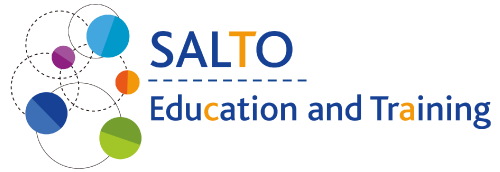Training and Cooperation Activity (TCA) “Green Erasmus – A contribution to Europe’s green transition?!” in Lüneburg
From May 21 to 23, 2025, the international Training and Cooperation Activity (TCA) “Green Erasmus – A contribution to Europe’s green transition?!” took place in Lüneburg.
 DE02
DE02The aim of the event was to take stock of the implementation of the Erasmus+ horizontal priority "Environment and the fight against climate change" so far and to explore the concrete contribution Erasmus+ can make to Europe’s ecological transformation. The TCA was aimed at stakeholders in both vocational education and adult education under Key Actions 1 and 2.
With 70 participants from 18 countries – including Belgium, Cyprus, Czech Republic, Denmark, Estonia, Finland, Germany, Iceland, Italy, Latvia, Lithuania, Luxembourg, the Netherlands, Portugal, Slovakia, Spain, Sweden, and Turkey – the TCA reflected rich European diversity and lively exchange.
After arriving on May 21 and enjoying a shared lunch, the event began with an interactive welcome and the “Green Rally” – a warm-up activity designed to introduce the topic of sustainability. The content-related kick-off was marked by an input session on “Sustainability in the Erasmus+ Programme”, followed by a best-practice presentation from the Adolf-Kolping-Berufskolleg in Kerpen-Horrem, which has already demonstrated successful approaches for integrating sustainability into mobility planning and overall institutional development.
Participants then took part in a guided city tour of the Hanseatic town of Lüneburg, gaining fascinating insights into its historical development, cultural features, and local landscapes.
Day 2: Practice in Focus – A Journey Through Project Examples
The second day focused on learning from practice. Four thematic stations showcased innovative project approaches to implementing ecological sustainability. In an interactive “journey” through different topic rooms, participants gathered a variety of impulses and inspiration for their own work.
I: Communicating Sustainability The Adult Education Association of Baden-Württemberg and the Werner-von-Siemens School in Wetzlar presented strategies for making sustainability visible and tangible. Their contributions included initiatives for creating an “ecological handprint”, such as designing and constructing custom recycling systems.
II: Rethinking and Implementing Climate Protection The State Vocational School of Mindelheim and the Belgian organization Happonomy VZW demonstrated how learners and staff in transnational projects can become active agents of climate protection. Their focus included implementing concrete measures such as energy efficiency and sustainable mobility, and initiating local sustainability impulses, or “sparks”, through informal meetups, transformative learning workshops, and the building of both international and regional networks.
III: Fostering Ecological and Social Transformation The Leipzig-based initiative “heldenküche” and the Blended Learning Institutions Cooperative (B4C) from Göttingen showed how ecological and social sustainability can be combined. “heldenküche” is developing 12 sustainable children’s recipes based on research and regional best practices, published as menu cards, cooking videos, and a cookbook. These are introduced in online events to raise awareness among trainees, parents, and chefs about healthy nutrition. The B4C project trains instructors and professionals in the field of biochar and the circular carbon economy, promotes collaborative learning, and fosters a sustainable “culture of sustainability” with citizens and NGOs.
IV: Creating New Ecological Learning Environments Interchange Non-Profit gUG and the Adam-Josef-Cüppers Vocational College presented examples of innovative learning environments focused on ecological sustainability. The Adam-Josef-Cüppers College in Ratingen promotes digitalization and sustainable water management skills through blended learning, international cooperation, and activities such as Rhine River clean-up events. The school is certified as a European Blue School, strengthening both sustainable water management and civic engagement. The Bremen-based organization Interchange Non-Profit gUG uses the “Into the Deep” project to teach adults about marine ecosystems and marine science, build trust in climate science, and actively engage the public through citizen science and live formats.
After the project presentations, participants worked in small groups with the tool “VERDIR – A SALTO Green Game”, exploring challenges and opportunities in sustainable project planning throughout the project cycle. The main focus was on exchanging helpful resources and materials.
In the afternoon, the group visited the Niedersächsische Elbtalaue Biosphere Reserve near Bleckede. Experiencing biodiversity on-site and engaging in dialogue with local experts offered a powerful bridge between theory and practice.
Day 3: Concluding with Perspectives
The third and final day of the event was dedicated to developing future perspectives. During a wrap-up session, key takeaways were summarized – such as the importance of consistently approaching sustainability as a cross-cutting issue and creating synergies with other horizontal priorities like inclusion, digitalization, and participation. The subsequent “Open Space” session provided participants with the opportunity to bring in their own topics, connect with others, and initiate new partnerships.



